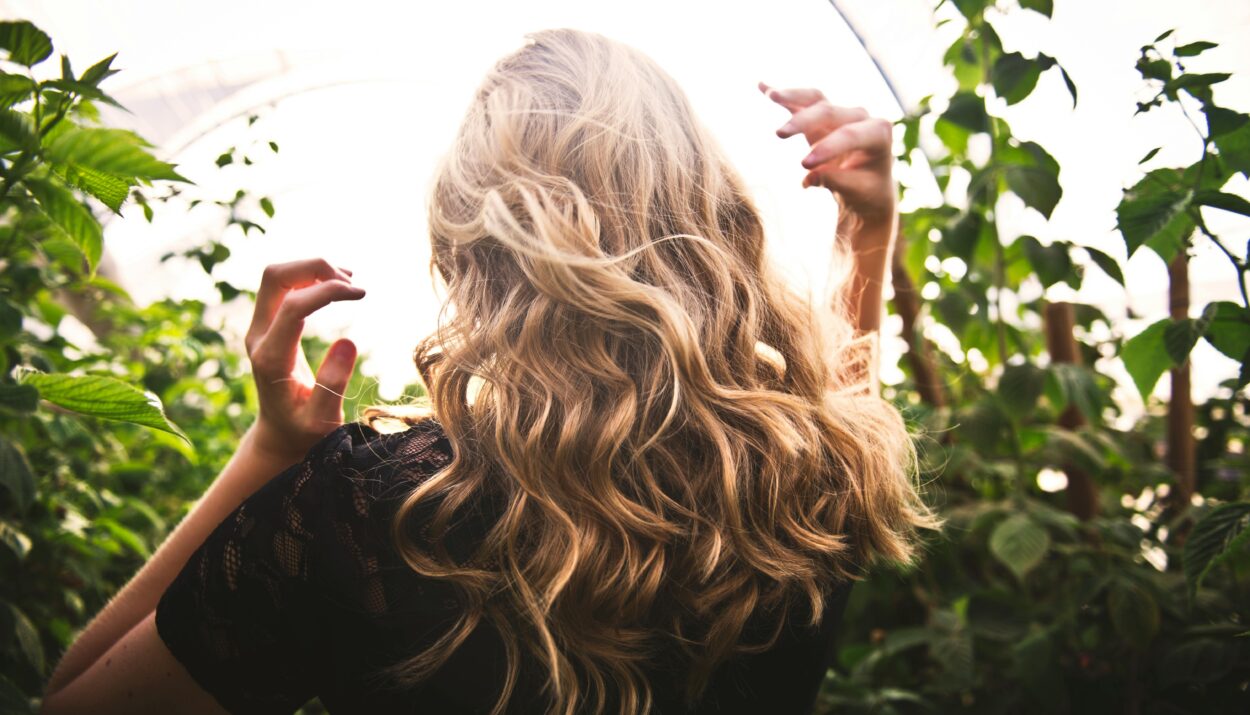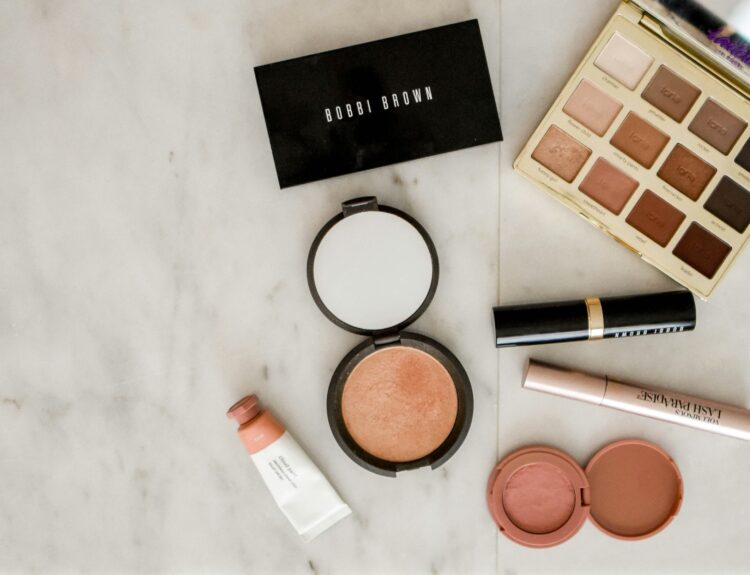When it comes to luscious, shiny hair, South Asian women have long been admired for their thick, healthy locks. Our beauty secrets are deeply rooted in tradition—passed down from grandmothers to mothers to daughters. In this blog post, I’ll take you through my personal hair care routine, reveal time-tested South Asian remedies, and share diet tips that nourish your hair from the inside out.
Whether you’re dealing with hair fall, dryness, split ends, or slow growth—this guide covers it all with natural, affordable methods that actually work.
Why Is Hair Care So Important?
Your hair is more than just a beauty asset—it’s a reflection of your overall health. Stress, poor diet, pollution, and harsh products can all damage your hair. That’s why I’ve adopted a holistic approach to hair care that blends ancient South Asian wisdom with modern lifestyle needs.

My Hair Care Routine: Step-by-Step
1. Oiling – The Crown Jewel of South Asian Hair Care
The foundation of my routine is regular hair oiling, which has been a part of South Asian beauty culture for centuries. I oil my hair twice a week using a powerful DIY blend:
DIY Hair Oil Recipe:
- 3 tbsp coconut oil (base oil)
- 2 tbsp castor oil (for thickness)
- 1 tbsp almond oil (for shine)
- A few fenugreek seeds (methi)
- Curry leaves (rich in vitamin B)
How I use it: I heat the oil slightly, massage it into my scalp for 10 minutes, then coat the lengths. I leave it overnight and wash it the next morning with a gentle sulfate-free shampoo.
Benefits:
- Strengthens roots
- Prevents premature greying
- Reduces dandruff
- Boosts hair growth
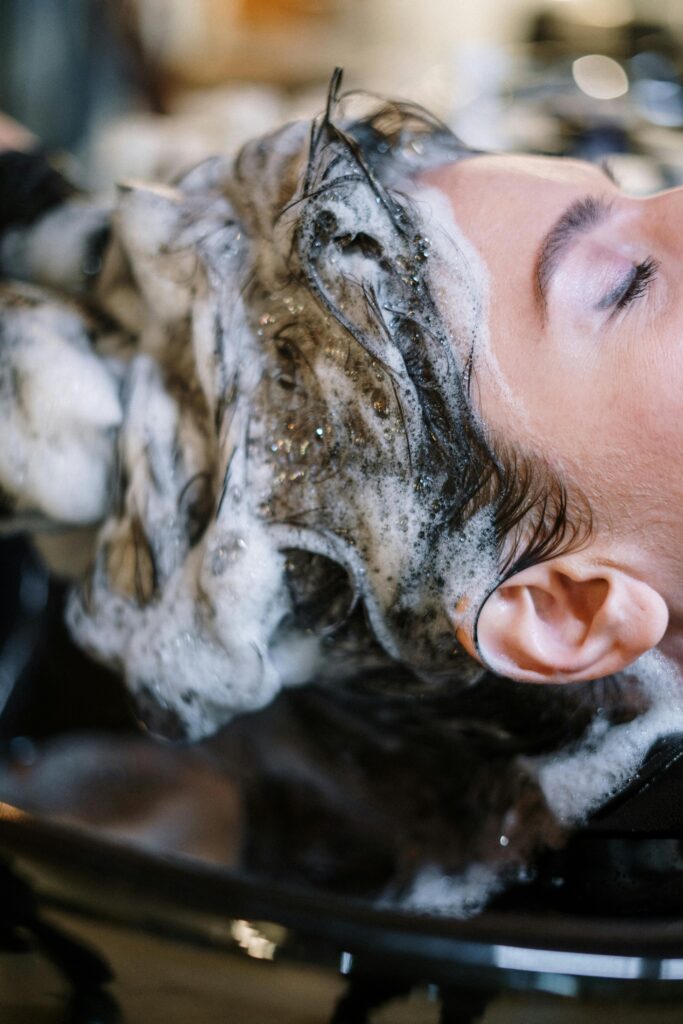
2. Gentle Cleansing
I wash my hair 2-3 times a week using a mild, paraben-free shampoo. Over-washing strips your scalp of natural oils.
Shampoo Tips:
- Always dilute shampoo with a little water
- Focus on the scalp, not the lengths
- Rinse with cool water to seal cuticles
3. Deep Conditioning
After shampooing, I use a homemade hair mask once a week.
My Favorite Mask:
- 2 tbsp yogurt
- 1 tbsp honey
- 1 tbsp aloe vera gel
- 1 tsp coconut oil
Leave it on for 30 minutes and rinse. This deeply hydrates and smooths the hair.
4. Natural Rinses
I alternate between two traditional herbal rinses:
- Rice water rinse (protein-rich, adds shine)
- Hibiscus tea rinse (prevents hair fall)
How to use: After washing, pour the rinse over your hair, let it sit for 5 minutes, and rinse again lightly with plain water.
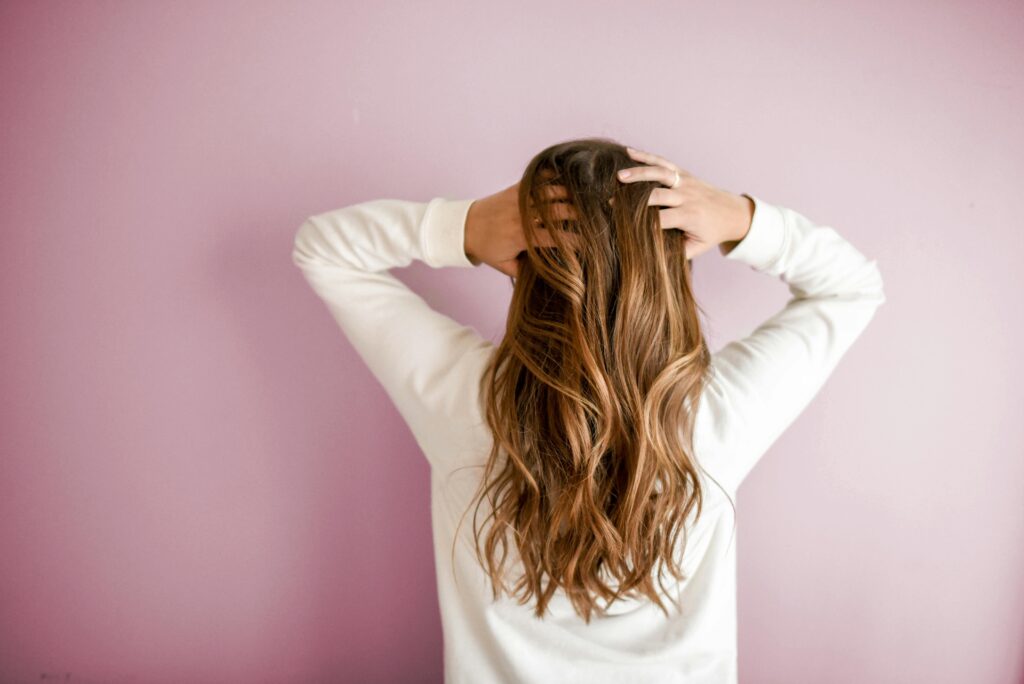
5. Minimal Heat Styling
I rarely use heat on my hair. When I do, I always apply a heat protectant. Air drying and loose braids are my go-to.
6. Regular Trimming
Every 6–8 weeks, I trim the ends to avoid split ends and maintain healthy growth.
7. Scalp Scrubs and Detox
Once a month, I do a scalp scrub to remove buildup.
DIY Scalp Scrub:
- 1 tbsp brown sugar
- 1 tbsp coconut oil
- Few drops of tea tree oil
Massage gently into the scalp before shampooing.
Traditional South Asian Hair Secrets That Actually Work
Henna (Mehndi) Conditioning
Henna isn’t just for color—it strengthens and thickens the hair.
How I use it:
- Mix henna powder with black tea, yogurt, and a few drops of lemon
- Leave it overnight
- Apply the paste for 2–3 hours, then rinse
Note: Use once every 2 months.
Amla (Indian Gooseberry)
Packed with vitamin C and antioxidants, amla stimulates hair growth and reduces premature greying.
Ways to use:
- Mix amla powder into your oil
- Drink fresh amla juice weekly
- Use amla hair masks
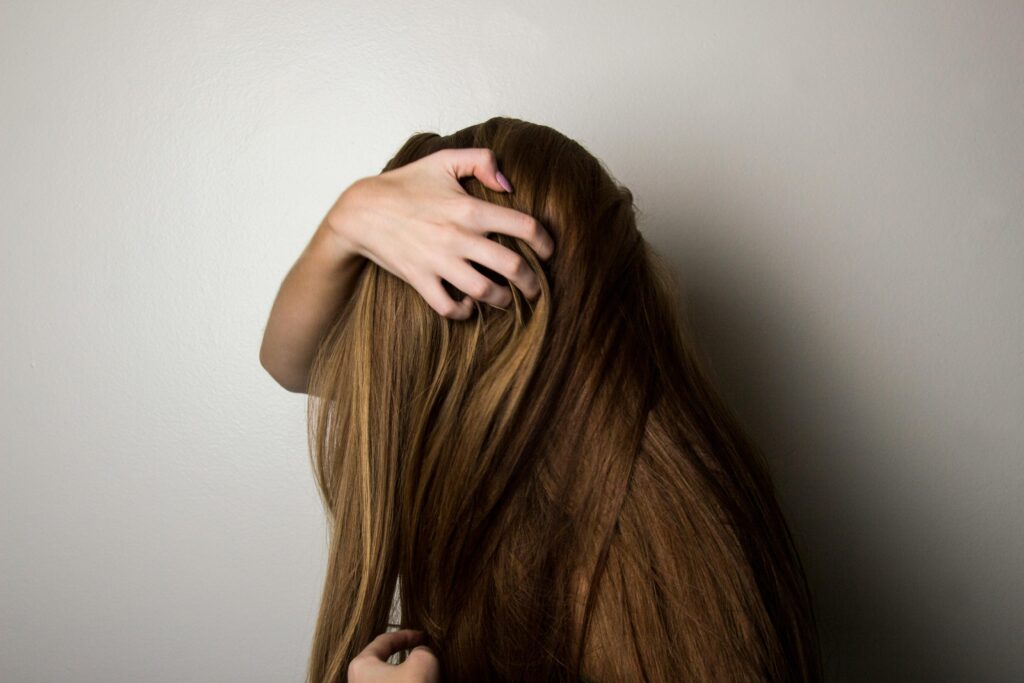
Shikakai & Reetha
Natural cleansers used in ancient times. They maintain scalp pH and prevent dandruff.
DIY Cleanser Recipe:
- Soak 2 tbsp shikakai and 2 tbsp reetha in warm water overnight
- Blend and strain
- Use as a shampoo substitute
Bhringraj (False Daisy)
Bhringraj oil is known as the “king of herbs” for hair. It promotes growth and reduces shedding.
Use:
- Infuse dried bhringraj leaves in sesame oil
- Warm and massage into scalp weekly
Neem
Neem is antibacterial and perfect for itchy or dandruff-prone scalps.
DIY Neem Mask:
- Grind neem leaves to a paste
- Mix with yogurt
- Apply to scalp for 20 minutes
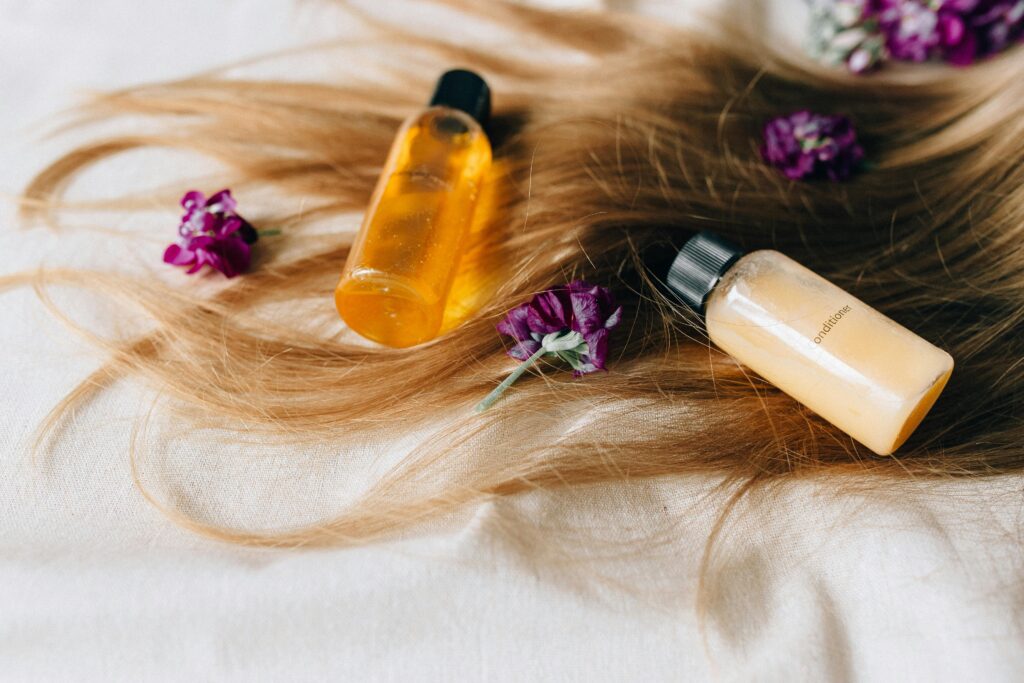
Eating Habits for Strong, Shiny Hair
Hair health begins from within. No amount of oiling will help if your diet lacks the nutrients your hair needs.
Here are the foods I include in my daily diet to keep my hair strong, shiny, and growing fast:
Protein-Rich Foods
Hair is made of keratin, a protein. A lack of protein can cause hair thinning and slow growth.
Foods I eat:
- Eggs (especially the yolk)
- Lentils, chickpeas, beans
- Chicken, fish
- Greek yogurt
Omega-3 Fatty Acids
Omega-3s keep your scalp hydrated and fight inflammation.
Best sources:
Fatty fish (like salmon)
Flax seeds
Chia seeds
Walnuts
Iron & Zinc
Iron boosts circulation to the scalp; zinc prevents hair fall.
Sources:
- Spinach
- Dates
- Pumpkin seeds
- Red meat (moderate intake)
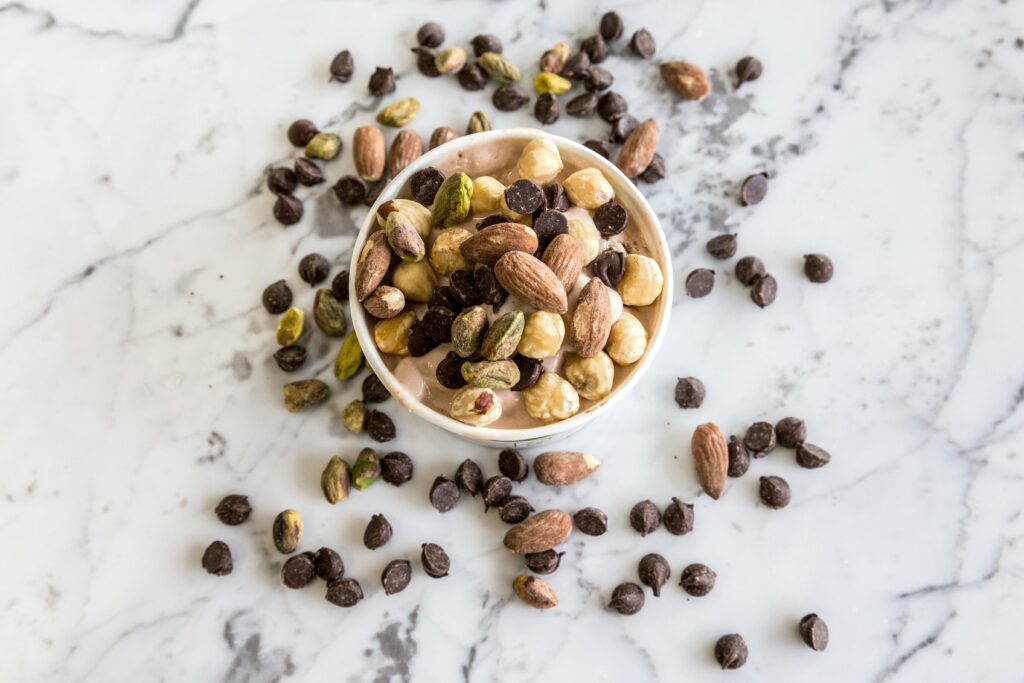
Biotin
This B-vitamin helps with hair growth and prevents breakage.
Foods I eat:
- Almonds
- Sweet potatoes
- Avocados
- Bananas
Water, Water, Water
Dehydration = dry, brittle hair. I aim for at least 8 glasses of water daily.
Herbal Drinks
- Fenugreek water (soak seeds overnight, drink on an empty stomach)
- Coconut water (rich in electrolytes and boosts scalp health)
- Coriander seed water (helps detox and balance hormones)
Weekly Meal Sample for Hair Health
Breakfast: 2 boiled eggs, spinach smoothie with chia seeds Lunch: Lentil curry, brown rice, sautéed vegetables with olive oil Snack: Mixed nuts (almonds, walnuts) and coconut water Dinner: Grilled fish or chicken, avocado salad, sweet potato
Bonus Tips for Healthy Hair
- Sleep on a satin pillowcase to reduce breakage
- Avoid tight hairstyles that pull on the roots
- Scalp massages improve blood flow and hair growth
- Protect your hair from the sun and pollution with a scarf or hat
- Use wooden combs instead of plastic to reduce friction
- Keep your stress levels low with yoga or meditation
- Maintain a consistent sleep schedule
FAQs About Hair Care Routine & South Asian Secrets
- How often should I oil my hair?
I recommend oiling your hair 2–3 times a week. Leave the oil on overnight or at least for a few hours before washing.
2.Can I use South Asian hair remedies on chemically treated hair?
Yes, most natural remedies like amla, fenugreek, and yogurt are gentle and suitable for all hair types—including chemically treated hair. However, always do a patch test first.
- What is the best oil for hair growth?
Coconut oil is great for hydration, while castor oil boosts thickness. For best results, use a blend of oils with herbs like fenugreek, curry leaves, or amla.
- How long does it take to see results from a natural hair care routine?
With consistency, you can expect noticeable improvements in 4–6 weeks. Hair growth is slow, so patience is key.
- Do I have to stop using shampoo and switch to natural cleansers like shikakai?
Not at all! You can use mild shampoos and occasionally alternate with herbal cleansers for a balance between convenience and tradition.
- What foods should I avoid for better hair health?
Try to avoid:
- Sugary foods (can disrupt hormones)
- Fried and processed foods
- Excess caffeine or alcohol
- How do I manage hair care during seasonal changes?
In summer, wash more frequently to remove sweat buildup. In winter, focus on hydration and deep conditioning. Use a humidifier indoors and cover your hair when going out.
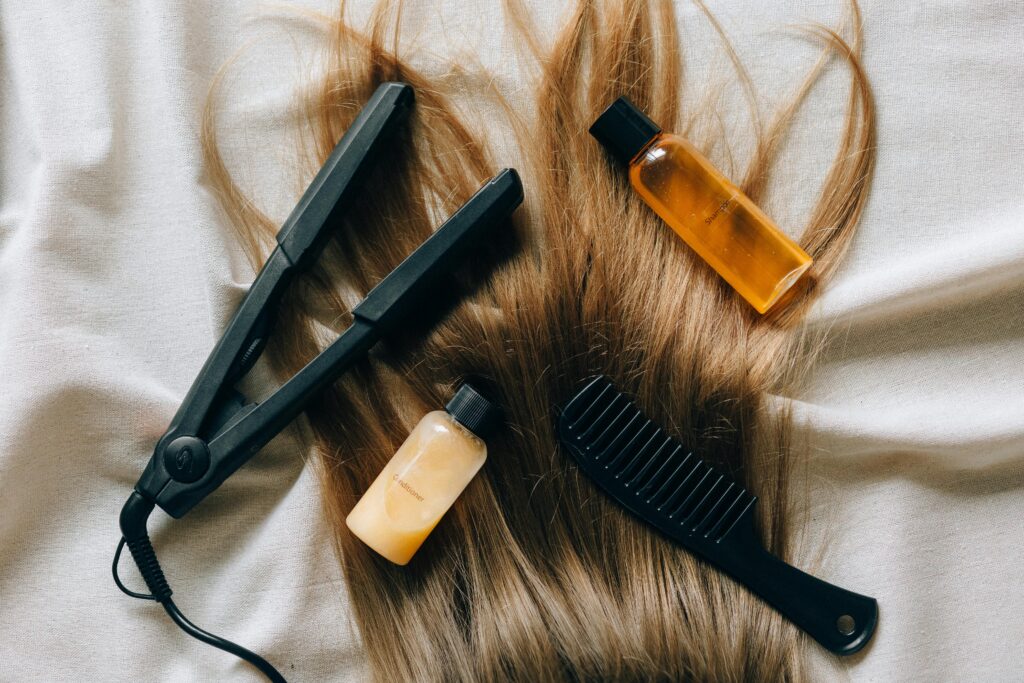
Final Thoughts
Taking care of your hair is not just about applying products—it’s a lifestyle. By incorporating South Asian traditions with mindful eating, you’re not just improving the look of your hair, but also supporting its health from the inside out.
If you’re ready to ditch the chemicals, embrace natural hair care, and glow from root to tip—this is your sign to start today!



